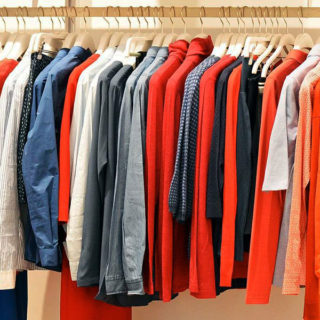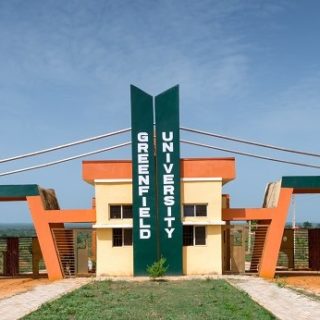Citizen is a column that explains how the government’s policies fucks citizens and how we can unfuck ourselves.
After Godiya and her husband’s unsuccessful attempt at getting a child through pregnancy for a year, they decided to adopt one instead. Although Godiya has always been pro-adoption, broaching her partner with the subject was another case.
“When my partner and I decided to have kids we realised we would need assisted fertility to conceive. I refused to go through with the treatments and opted for adoption while we keep trying naturally,” the 28-year-old says. “This caused quite the ruckus, I don’t think men spend any time thinking about what life might mean for them if they are unable to father a child. It was a huge blow for him especially but thankfully he was not opposed to adoption.”
One of the problems they encountered apart from coming to terms with having to adopt a child was Nigeria’s cultural perception regarding adoption, with many of the family members they spoke to regarding their decision, mentioning that they were too young to be considering adoption.
“They felt we should keep trying and adopt as a last resort,” the 28-year-old says. “So you can imagine all the tough conversations we needed to have.”
Another issue they are facing now, as they are still in the process of adoption, is the uncertainty that comes with not knowing whether or not the state they are looking to adopt from might find them good enough to adopt the child they want.
“There’s a lot of uncertainty there but I’m happy enough with it. Even with a biological child, there are many uncertainties so that’s pretty much given. Plus If you go through adoption legally, it’s never a quick and easy process so you’d require a ton of patience,” Godiya says.
According to the Child Rights 2003, to adopt a child in Nigeria, the prospective adoptive parents are expected to be at least 25 years of age and at least 21 years older than the child. Married couples may adopt if both parents are Nigerian citizens. A Single parent, however, must have attained the age of 35 years and they can only adopt a child who is of the same sex as them. At least one parent is expected to be present during the adoption process to be able to establish a parent-child relationship with the courts before the final adoption procedures. It is also important to note that the process could take up to a year.
Although Nigeria ranks as the 7th easiest country to adopt from, the cultural perception regarding adoption still places natural birth processes above other means of having a child. But seeing as children and child-rearing is important to many cultures in Nigeria
For many, it is a less controversial option to surrogacy – which hasn’t been legalized and leaves many of its participants with minimal legal protection – and has been co-opted by human traffickers to create baby factories that put the lives of unwilling mothers in extreme danger and put their babies up for sale for anything between ₦700,000 to ₦1,000,000.
Speaking on the process itself, Godiya explains, “Adoption in Nigeria is a rather long process to be honest and from what I’ve seen it varies by individual. In my case, my mum went to the ministry of women’s affairs in Delta state where my family resides to get the initial approval. They said it could not be processed there because we are not from that state. We had to go to our state of origin. So she went to Anambra state, the same ministry of women affairs, and got the approval. The approval here is just the ministry affirming that you can put in applications to adopt with orphanages in the state. They would give you a document to that effect. The document also states the specifications of the child you’re interested in adopting. Mum took that document to about 6 different orphanages. We got application forms for these places and then WE wait for the call that says, there is a child that meets your specification. My mum was really involved because at the moment my husband and I are outside the country. But we really want to adopt from Nigeria. It took a couple of months for us to get the call but eventually, we did.”
Now Godiya and her husband are going through another set of applications. These include police checks, medicals, and a court appearance due next week “to begin processing foster care papers for the child we are hoping to adopt.” Godiya also explains that if the paperwork happens without a hitch, she and her husband would be able to take their child home on a foster care basis as the Anambra state ministry would not process full adoption papers until the child has been properly fostered for about 4-6 months.
Eleojo* who was adopted over 20 years ago ( in 1996) when she was two tells us that her adoption process was a lot less complicated. “My mom is white American and my dad is Nigerian. They married when my mum was 41 and my dad was about 32 so by the time she wanted kids it was late. I don’t think the policies for adopting children were as serious as they are now. They simply asked a friend of theirs to help refer them to an orphanage and she found the place in Kubwa. I was among the three children they had to choose from. My mum told me that when she came to talk to me, she felt drawn.”
Eleojo* who is now 27, also explains that the process was made easier because her dad is a lawyer. Because there weren’t that many adoption agencies at the time, the process was officiated by the orphanage. Her parents were asked routine questions about what they did and how much they earned, they also had someone stay with her for about a week just to make sure she eased into the family system without trouble. “This was because my dad already has a son from his first wife who died during childbirth,” Eleojo* says.
In spite of the – expectedly long and thorough – processes involved in adopting a child in Nigeria, Godiya is geared up and open to the stress. And although they haven’t physically met the child Godiya and her husband are set to adopt, they have been able to form a connection with her through a series of video calls. As Godiya says, “Overall the experience has been stressful, physically, emotionally, and financially. Adoption is not an altruistic walk in the park, but regardless we are delighted to be doing it, we feel like we are able to do something meaningful with the curveball that life threw me on our parenthood journey.”




